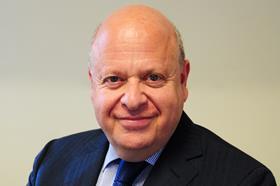It is nearly a year since I was elected to the ouncil as the member for EU matters.

The quality which surprised me most when I first joined is the representative nature of the council’s membership. Great efforts have been made to ensure that all parts of the profession are reflected: geographical, since every part of the country has one or more council member; sectoral, covering different areas of practice, either through the nature of employment (local authority, commerce and industry, government) or through specialisation (for instance, immigration, housing, employment law and so on); and finally by way of identifying personal qualities, guaranteeing that women, ethnic minorities, LGBTI solicitors and those with disabilities are represented. I have rarely encountered such a diverse group.
Nevertheless, there is continuing debate about whether it is representative enough. For instance, given that such a large percentage of the profession works in London, should London have greater representation? And are there still too many older white men – like me - in a proportion which is not reflective of the demographic of the wider profession?
Some of the criticisms I had heard before I joined are largely true. For example, it is a very large body (100 members), and it does not deal often enough with the many policy issues affecting the profession, which are covered by the specialist committees.
There is also a continuing problem with communications between council members and their constituencies. For those with an active local law society or active sectoral grouping which maintains an up-to-date membership database, there is no problem. But many do not have that. I, for instance, represent a strange hybrid electorate made up of solicitors living in the EU – like myself – and members of the Competition Section. There is no single database, and communications are through the Law Society, which itself has to acquire the relevant up-to-date data from the SRA before sending out my twice-yearly newsletters. Those responsible are aware of the problem, and trying to fix it.
But the council’s many good qualities are hidden from sight. It offers its politicians great opportunities to become involved in policy matters through the committee structure. The specialist committees of the Law Society are one of its recognised strengths, offering practical guidance, evidence, media representation and general expertise on a very broad range of issues. The day-to-day policies of the Law Society on technical issues are mainly developed in these committees, and as a council member I can join and offer views.
For instance, I have been a member of the EU Committee from the beginning of my mandate, providing regular opportunities to comment on Brexit policies as they are developed. Brexit makes up nearly the whole agenda of the committee. Of course, a council member is only one of various voices contributing to the response.
I have also been elected by my fellow council members to the new policy committee which oversees the work of all the substantive law and practice committees, the wonderfully titled Policy and Regulatory Affairs Committee or PRAC. It is part of the brand new Law Society structure (it is too early to say whether this is an improvement on what went before).
One of the roles of PRAC committee members – no one told me - is to interview and appoint the members and chairs of the substantive committees which fall under it. I have recently spent a couple of days in London interviewing solicitors for three different committees, which gave me a privileged view of the depth and excellence of the many members of our profession who come forward as candidates.
This part of the council’s work is hidden – to encourage and enable the best members of our profession to participate in their professional body for the benefit of all.
The policy staff of the Law Society are of the highest quality, but they cannot know everything. By the nature of their work for the Society, they are not able to be practitioners at the same time, and so need the input of practitioners. They also cannot be expected to know all the policies and practices of other bars in Europe and elsewhere, which is where I hope that I am able to be of assistance – by bringing different solutions from other countries into Law Society discussions, to find maybe a new way forward.
Council members are the medium by which the profession communicates to, and implements its wishes through, its professional body. Communications between the council and the profession are not easy, for reasons I have described. But it is a two-way street. I know from endless council discussions that council members are desperate to hear from the profession, and the council tries its hardest to report to them. In turn, individual solicitors should communicate their views to their council member.



























1 Reader's comment